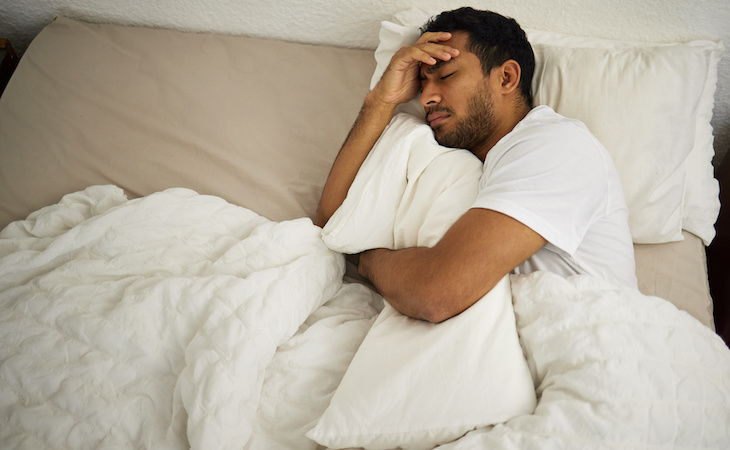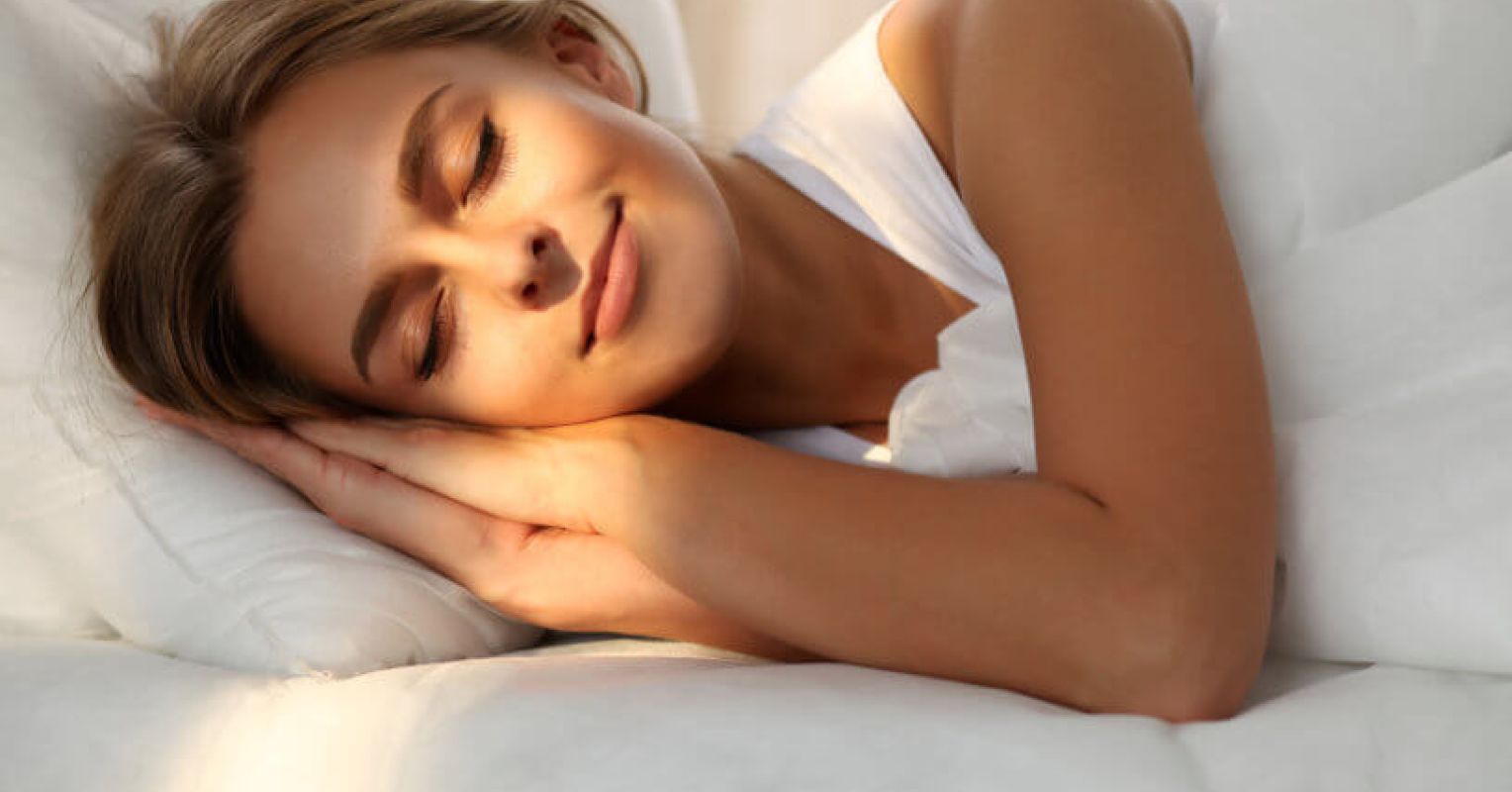Sleep Improvement Therapy - Boost Your Sleep Top Quality
Reliable Therapy Solutions for Handling Sleep Disorders and Enhancing Peaceful Sleep
In the realm of health care, the management of rest disorders and the mission for relaxing rest are critical elements of total well-being. As we browse the detailed landscape of sleep conditions and seek to enhance our sleep experience, a much deeper understanding of these treatment options may hold the secret to opening an extra relaxing and meeting corrective journey.
Cognitive Behavior Modification for Sleep Problems (CBT-I)
Cognitive Behavior Modification for Sleeplessness (CBT-I) is an organized, evidence-based treatment approach that concentrates on addressing the underlying factors adding to sleep disturbances. This type of treatment intends to change habits and thoughts that worsen sleep problems, inevitably promoting healthy and balanced sleep patterns. CBT-I typically entails numerous vital elements, including cognitive therapy, sleep constraint, stimulus control, and sleep health education and learning.
Cognitive therapy assists individuals identify and transform negative idea patterns and ideas regarding rest that may be preventing their capability to fall or stay asleep. Rest restriction entails limiting the quantity of time spent in bed to match the individual's real rest period, therefore raising rest performance (natural insomnia remedies). Stimulus control strategies help develop a strong organization in between the bed and sleep by encouraging people to head to bed only when sleepy and to prevent participating in promoting tasks in bed
Moreover, sleep hygiene education and learning focuses on creating healthy and balanced sleep practices, such as keeping a consistent rest timetable, developing a relaxing bedtime regimen, and maximizing the rest environment. By resolving these factors comprehensively, CBT-I supplies an effective non-pharmacological intervention for managing sleeplessness and boosting total sleep high quality.
Rest Health Practices
Having developed the foundation of cognitive restructuring and behavior adjustments in resolving sleep problems via Cognitive Behavior modification for Sleeping Disorders (CBT-I), the focus currently moves in the direction of checking out necessary Sleep Health Practices for preserving optimum rest quality and total well-being.
Sleep health techniques include a variety of routines and ecological elements that can substantially impact one's capacity to drop off to sleep and stay asleep throughout the evening. Consistent sleep and wake times, developing a relaxing going to bed regimen, and maximizing the rest atmosphere by keeping it dark, silent, and cool are crucial parts of great rest health. Limiting direct exposure to displays before going to bed, avoiding energizers like high levels of caffeine near going to bed, and taking part in routine exercise during the day can also advertise much better sleep quality.
Additionally, exercising relaxation methods such as deep breathing exercises or reflection prior to bed can help relax the mind and prepare the body for sleep. By incorporating these rest health methods into one's daily routine, individuals can develop a healthy sleep pattern that supports relaxed rest and overall wellness.
Leisure Techniques and Mindfulness
Executing leisure techniques and mindfulness methods can play a critical role in fostering a feeling of tranquility and promoting top quality sleep. Furthermore, assisted images can help deliver people to a relaxed location in their minds, helping in stress reduction and boosting rest quality.
Mindfulness practices, such as reflection and yoga exercise, are also efficient in advertising leisure and improving sleep. Mindfulness urges people to stay existing in the moment, allowing go of fret about the past or future. By incorporating these practices right into a going to bed routine, individuals can indicate to their bodies that it is time to loosen up and prepare for rest. Overall, incorporating leisure strategies and mindfulness techniques can substantially add to handling sleep disorders and improving general sleep high quality.

Medicine Options for Sleep Disorders
After discovering leisure strategies and mindfulness techniques as non-pharmacological treatments for boosting sleep quality, it is vital to consider medication options for individuals with sleep conditions. In situations where lifestyle changes and treatment do not give sufficient relief, medicine can be a valuable tool image source in handling sleep disturbances.
Typically suggested drugs for rest disorders include benzodiazepines, non-benzodiazepine hypnotics, antidepressants, and melatonin receptor agonists. Benzodiazepines, such as diazepam, are sedatives that can help generate rest, but they are typically advised for short-term use because of the threat of reliance. Non-benzodiazepine hypnotics like zolpidem are likewise made use of to treat sleeplessness and have a reduced threat of dependence contrasted to benzodiazepines. Antidepressants, such as trazodone, can be useful for individuals with co-occurring depression and sleep disruptions. Melatonin receptor agonists, like ramelteon, target the body's all-natural sleep-wake cycle and can be helpful for controling sleep patterns.
It is essential for individuals to talk to a doctor to determine the most proper medicine choice based on their specific rest condition and clinical background.
Light Treatment for Body Clock Guideline
Light treatment, also referred to as photo-therapy, is a non-invasive treatment method utilized to manage circadian rhythms and boost sleep-wake cycles. This treatment entails exposure to intense light that imitates natural sunlight, which assists to reset the body's biological rhythm. By revealing people to specific wavelengths of light, generally in the morning or night relying on the desired impact, light treatment can properly change the circadian rhythm to promote wakefulness throughout the day and boost relaxing sleep in the evening.
Study has shown that light treatment can be specifically useful for people with body clock conditions, such as postponed sleep phase disorder or jet lag. It can likewise be useful for those experiencing seasonal affective condition (SAD), a kind of clinical depression that usually happens throughout the wintertime insomnia in elderly months when natural light exposure is lowered. Light treatment is typically well-tolerated and can be made use of in combination with various other treatment techniques for sleep disorders to maximize outcomes and improve general sleep high quality.
Verdict
In verdict, effective treatment options for handling rest disorders and improving relaxed rest include Cognitive Behavioral Therapy for Sleeplessness (CBT-I), rest hygiene methods, leisure strategies and mindfulness, medication options, and light therapy for circadian rhythm guideline. These approaches can help people improve their sleep top quality and total well-being. It is essential to speak with a doctor to determine the most suitable approach for dealing with sleep problems.
As we browse the intricate landscape of sleep disorders and seek to boost our rest experience, a deeper understanding of these therapy remedies might hold the secret to unlocking an extra rejuvenating and fulfilling corrective journey.
Rest constraint entails restricting the quantity of time spent in bed to match the individual's real sleep period, thus raising sleep performance. Constant rest and wake times, producing a relaxing bedtime regimen, and enhancing the sleep atmosphere by maintaining it dark, quiet, and cool are vital components of great rest hygiene. Light therapy is usually well-tolerated and can be utilized in combination with other treatment techniques for sleep problems to enhance end results and improve total rest high quality.
